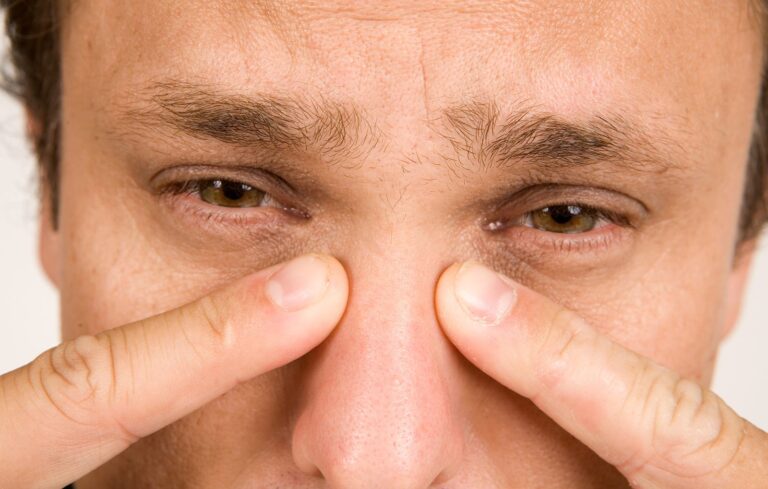What results in nose infection or why do I get it? Anyone at whatever age can get it on or inside nasal lining or cavities including the sinus. This post has information on symptoms including sinus infection, symptom relief, remedies, and treatments.
Understanding the sinuses
What are the sinuses? The sinus of human nose refers to hollow narrow spaces located in the bone. They mainly help in passage of air into respiratory body organs. Another function of the sinuses is to drain mucous towards the nostrils.
Causes
What is nose infection? What causes it? It can occur in the skin covering the nose or the inner parts or structures connecting to the nose such as the sinuses.
When the microbes causing it multiple or are in abundance we say there is an infection. These infections may be caused by bacteria, viruses or fungi. See below.
Bacterial or staph nose infection
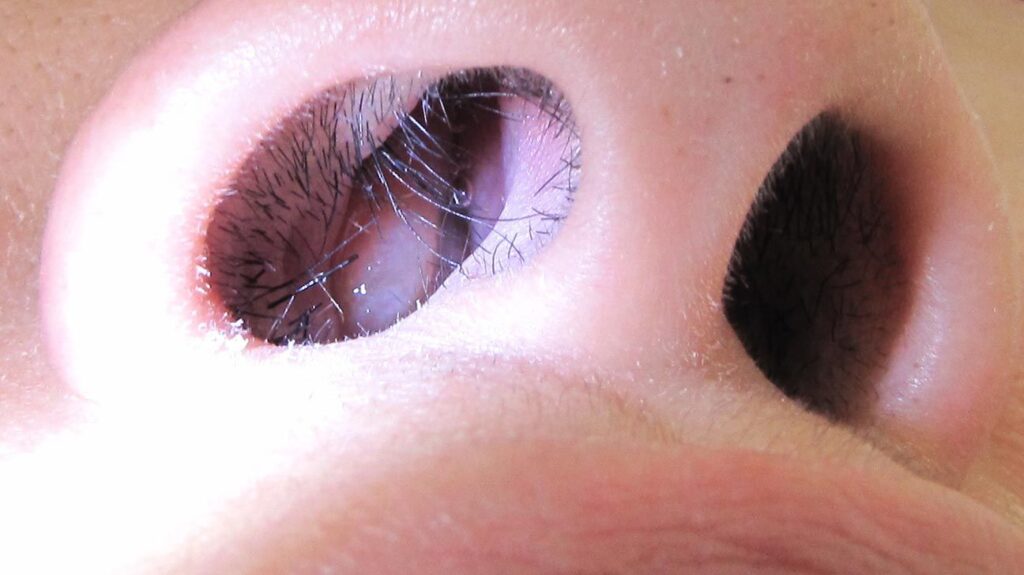
Why are bacterial cases common? Almost everyone carries the staph bacteria in the nose or on the skin surface. Under favorable conditions, the bacteria multiply leading to an infection.
The bacterial strain Staphylococcus aureus is the most common cause. Most cases caused by S. aureus are secondary. Infections occur after colds, flu or when the nasal membranes become viable hence cannot filter out germs and foreign stuff.
Bacterial caused cases of nose or staph can produce localized signs or as inside-body symptoms in the case of invasive infections, i.e. when it attacks internal body organs.
Viral
Secondly, viral cases can be caused by viruses more so if you have a cold or flu. Viral infection symptoms are typical of a sinusitis whose symptoms last up to ten days. The symptoms usually worsen in the first few days, say first 5 days. Thereafter, there is an improvement.
Viral infections are even common than cases reported with bacteria.
Fungal
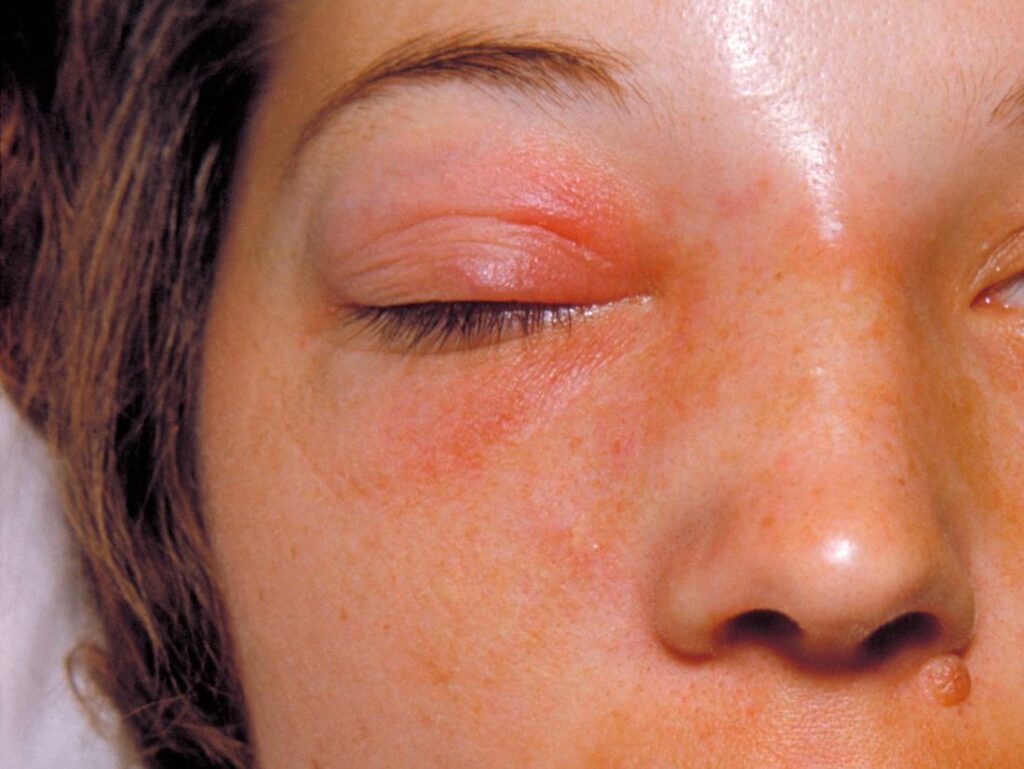
Nasal infections can also be caused by fungi. It occurs in middle-aged people with reduced immunity. The common cases involving the nose are the fungal sinusitis especially the maxillary sinus. Fungal strains involved include Aspergillus sp. such as fumigatus, flavus and niger.
Do fungal cases have symptoms similar to bacterial or viral symptoms? Basically, symptoms early on relate quite comparable. These include early infection symptoms like:
- Pain around eyes
- A headache
- Congestion
However, loss of vision and paralyzed eye muscles can be experienced later on.
Fungal nose infections require an examination and clinical studies including the study of the medical history of one’s past.
Nose infection and nose piercings
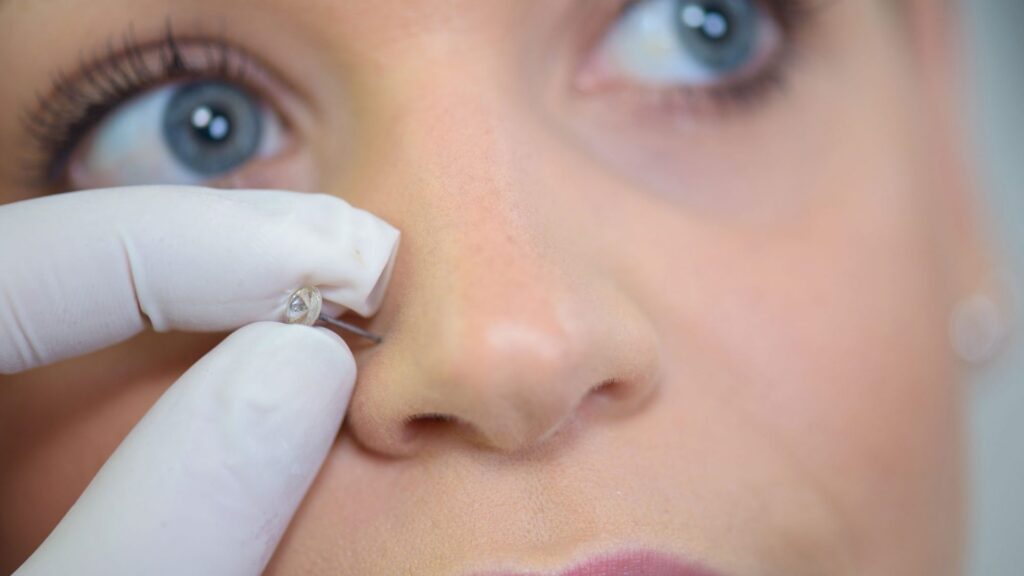
Nose piercing itself is not a cause of nose rather a risk factor. If you don’t follow or igore the basic rules and principles with most body piercings, you may regretfully end up with nose piercing infection.
Other causes
Listed below are additional causes include.
- Impetigo staph infections
- Nasal allergies (allergic sinusitis)
Signs and symptoms
Can your teeth hurt when you have a nose infection like sinusitis? Symptoms will vary with the level of infection and may depend on the causes or problems related to nose like a seasonal allergy.
1. Sinus pain and pressure
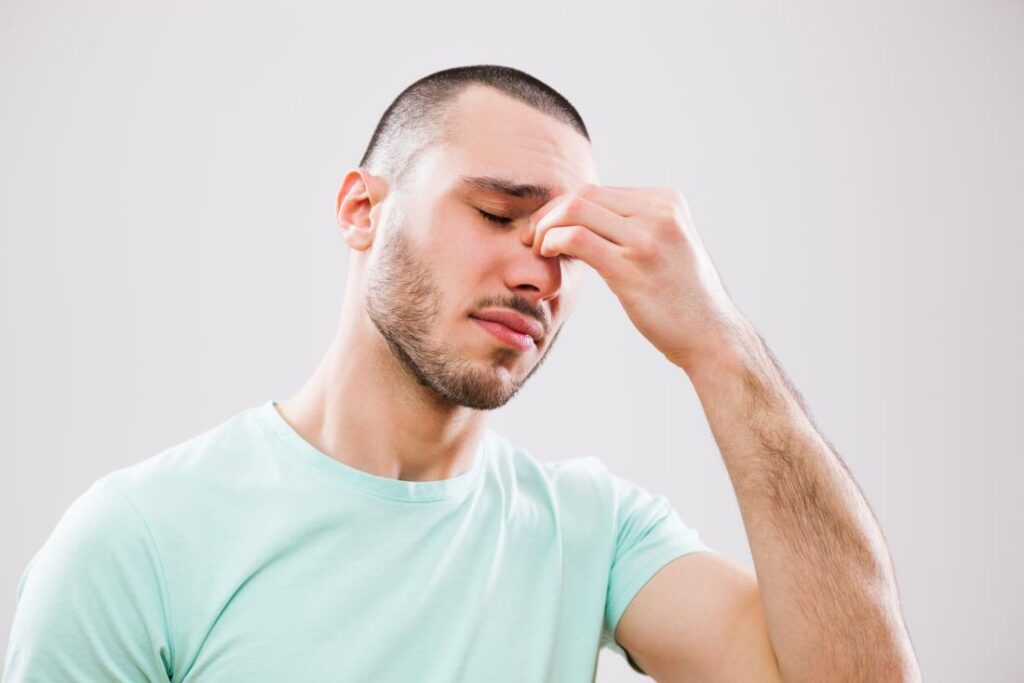
Sinus pain is more common after an infection. What causes sinus pressure? Sinus pressure, on the other hand, is often experienced when nasal passages swell or become congested or are blocked. Read on to get tips on how to relieve of sinus pain and pressure at home.
2. Sinus inflammation – nose or allergy?
Sinus inflammation occurs along the mucosal lining normally after an infection caused by a virus or bacteria. However, inflammation of the sinuses can also occur as a result of a nasal allergy.
Hence, is it a nose infection or allergies? Chronic sinusitis can cause inflammation of the sinuses though patients cannot tell the difference between chronic sinusitis symptoms and allergies. Nevertheless, a set of symptoms like headache behind eyes, facial tenderness, loss of taste or reduced sense of smell are crucial in telling one has nasal infection.
The bottom line – see an ear specialist in order to avert wrong treatment for a problem not well identified by self-diagnosis of symptoms.
3. A runny nose
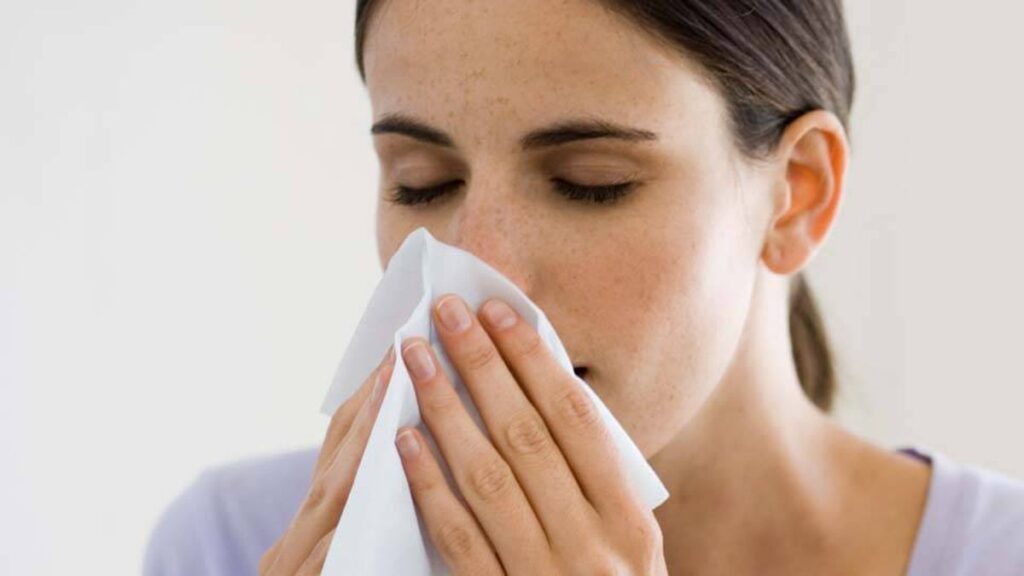
A clear runny nose can be a symptom of nose infection. Notably, acute sinusitis causes a runny nose. If your child or you have a runny nose which persists on, it is more likely due to staph infections.
4. Other symptoms
In addition to the above here are more symptoms of nose infection.
- Formation of sores in nose
- Pain in teeth
- Nasal congestion
- Cough
- Swollen sinuses
- Loss of taste and reduced sense of smell
- Headache or fever
- Chronic fatigue among others
Sinusitis or sinus infection
What is sinus infection? If the sinuses become blocked or filled with fluid, bacteria or other infection causing germs can accumulate causing infection. These would result to inflammation or swelling of the sinuses resulting to a sinus infection.
Also known as sinusitis, sinus infection may be considered a nose infection if caused by colds that develop and nasal polyps. Sometimes allergies and non-allergic rhinitis can contribute to nasal infection.
The following are types of sinus infection.
Acute/sub-acute sinusitis
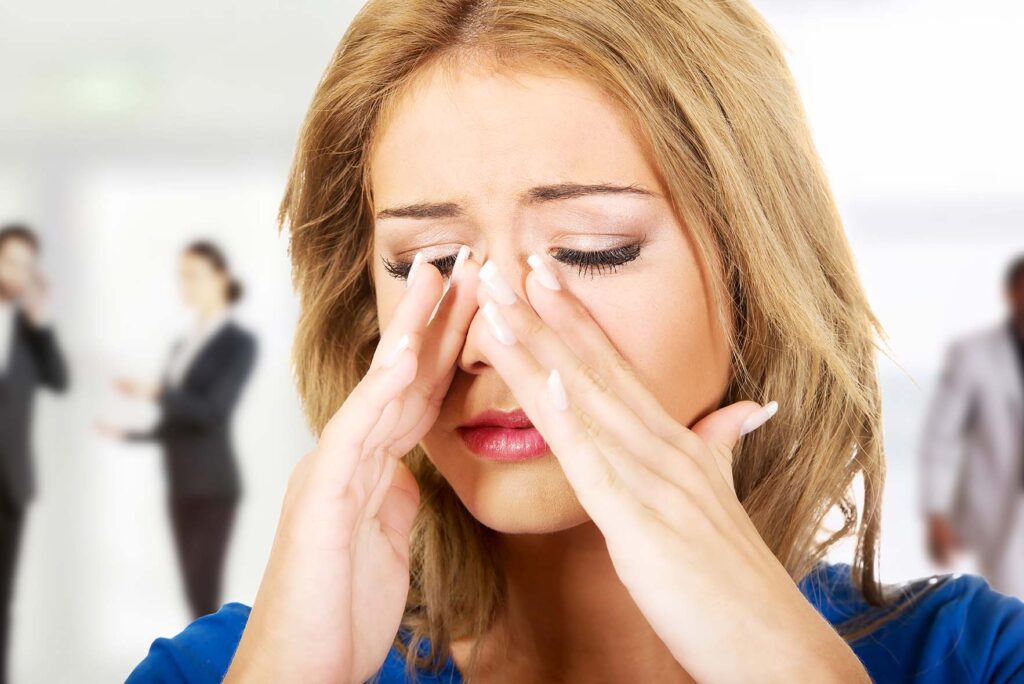
In acute sinusitis, symptoms develop for a short time and quickly. “Sinusitis is said to be acute if it lasts from 4-30 days and sub-acute if it lasts from 4-12 weeks,” notes Patient.info. Sometimes one has acute sinusitis when the symptoms persist after infection but [symptoms] not getting worse. Acute sinusitis can be caused by virus or bacteria.
Acute sinus infection symptoms due to bacteria or staph normally do not always show signs of improvements within 1 week of infection. Otherwise, symptoms can get worse after you start feeling better or after you get relief. If it is a viral one, symptoms show improvements within few days after infection – as we mentioned above.
The occurrence of acute or sub-acute sinusitis is normally once in lifetime. Nonetheless, some people can have a recurring acute sinusitis.
Chronic sinusitis – causes and symptoms
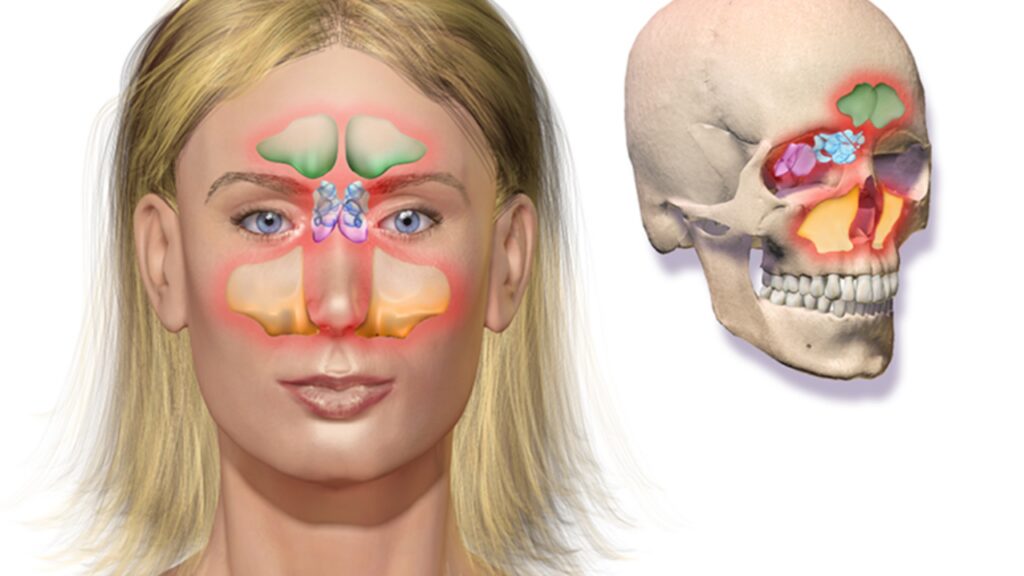
What causes chronic sinusitis? Chronic sinusitis can develop after an acute sinus infection, nasal polyps or a deviated nasal septum. According to American Academy of Allergy Asthma & Immunology, chronic sinusitis can be a problem if you have allergic rhinitis or asthma.
Symptoms of chronic sinusitis can develop to become more persistent. The common ones include sinus pain, reduced sense to smell and runny nose (esp. in young kids).
Other symptoms:
- Inflammation of the sinus linings
- Blockage of nasal channels leading to poor nasal drainage
- Mucous build-up in the channels
- Bad breath or thick yellow discharge that smells bad
- Headache or toothache or both at times
- Loss of body eager or energy or feeling weak
- Ear pressure
- A swollen face feeling
- Difficulty in breathing
Individuals with a persistent nasal allergy can experience inflammation since chronic sinusitis is mainly marked by inflammation of the sinuses.
Treatment – medicines

Infection in nose are treated differently depending on what actually bring about an infection. In particular, sinusitis treatment involves getting cure or relief of symptoms for instance. In some cases, treatment will be specific in regard to severity in symptoms produced and cause or what contributes to infection to occur.
Antibiotics for sinus infection
While these medications are best in treating bacterial infections, patients should cautiously take over-the-counter antibiotics. S. aureus or staph bacteria is becoming increasingly resistant to most antibiotic medicines. In essence, taking antibiotic drugs should be objective only as opposed the necessity of antibiotic treatment.
A. Acute bacterial sinusitis treatment
Antibiotics are commonly used to control or treat (sinusitis) caused by bacteria. These include Amoxil, Polymox, or Trimox medicines.
Acute sinusitis symptoms can also be treated best with over-the-counter corticosteroids, decongestants and pain reliever medicines like Advil and Tylenol. NOTE, you are required to complete medication as prescribed even if you or your child begins to show improvements.
Besides medication, patients can also take enough fluids while having adequate resting to ease themselves of troublesome symptoms.
NOTE: If you are allergic to penicillin please consult your doctor for an alternative solution.
B. Chronic sinusitis treatment
Chronic sinusitis can come with unbearable suffering and symptoms that we have highlighted earlier such as pain and aches. Most medicines for chronic sinus infection are prescribed by a doctor especially if it occurs after acute sinusitis. They include
Pain relief medication
These comprise painkillers for a short-term use such as ibuprofen or prescription medicines for long-term use. Always consult your GP when pain worsens.
Steroids
Steroidal medication can either be in spray or tablet form. They help in reducing inflammation. Your doctor will determine whether to be administered orally or as spray after asking you questions about your symptoms.
IMPORTANT: Young children and growing babies whose allergy symptoms persist must be taken to a doctor to receive proper treatment to relieve of symptoms.
C. Fungal treatments
Treatments include medicines to reduce or kill pain, nasal corticosteroid sprays or antibiotics to curd secondary infections’ potential. Other therapies may involve systemic medicines. For example, Ketoconazole, Prednisolone or Pethylprednisolone.
Fungal case is seen as uncommon but is reported to be on a gradual rise.
D. Sinus surgery
When do I need a sinus surgery? Surgery as a treatment option is necessary if the symptoms (allergy or sinusitis) cannot be controlled or treated with the medicines. The aim of this nasal surgery is to allow for proper drainage of mucous in the right channel or widen the air passages for efficient breathing.
Another purpose is to correct deviated nasal bones, removal of polyps hence help ease of sinus pressure. Moreover, it is understood that nasal medicines and sprays work better after a sinus surgery.
Endoscopic sinus surgery is a common type of sinus surgery. It should be done by a professional after a careful evaluation of your problem.
Sinus infection symptoms relief with natural remedies
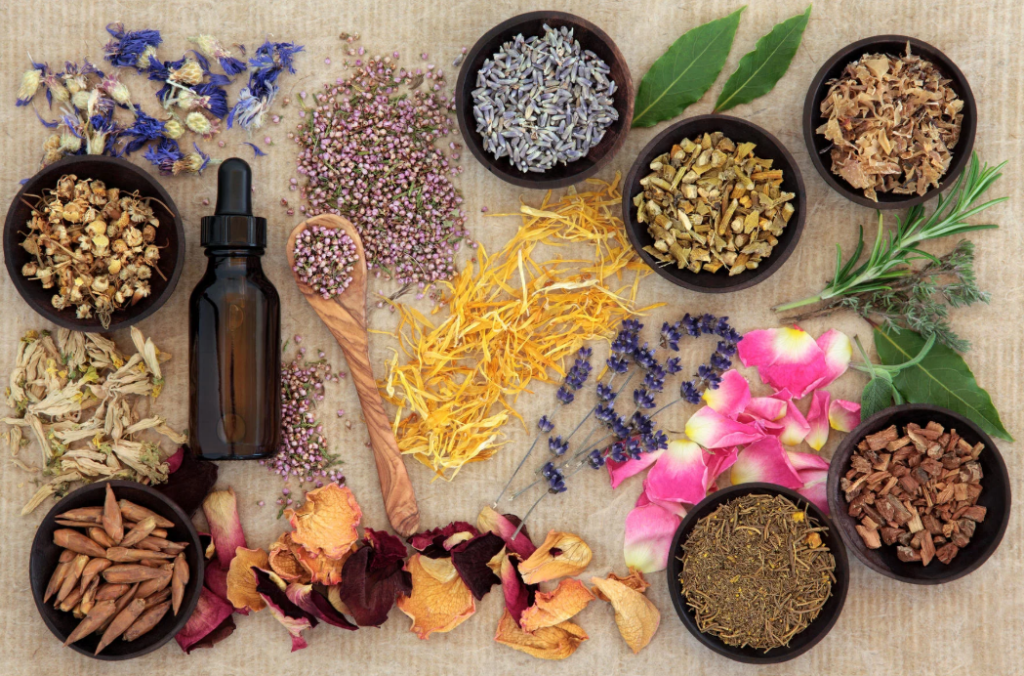
Below are simple remedies to help you relieve common symptoms.
1. Warm compress or steam
This is simple remedy for reducing sinus pain, easing out nasal inflammation and pressure. You can do it in two ways.
- Boil some water and pour some in a clean bowl.
- You can wash your face if you just woke up
- Lower your head slightly and allow the steam reach the nostrils or inhale
- Do it for a few minutes then you repeat when necessary
Otherwise, use a soft face towel to warm compress areas around the nose, cheek bones and the forehead.
2. Saline wash or nasal irrigation
Using nasal irrigation is a common and undoubtedly good remedy for thinning out the mucous layer to help reduce sinus pressure that results from nasal congestion. In addition, saline washing is quite an effective treatment remedy for sinusitis.
It is more advisable that you use a neti pot when carrying out a nasal irrigation.
3. Keep your body hydrated
Considering and planning what to take for sinus infection is quite important in helping to rid of the symptoms from a viral or bacterial infection. Moreover, this is ideal for your natural course of healing.
Ensure you continue taking sufficient fluids including water or natural fruit juice to try maintain a good ratio of tissue fluid in body to surrounding. Patients are more likely to lose a lot of when they have a cold or sinus infection.
4. Clear the allergy sources
Ensure you are done with anything you are allergic to around your living room or outside. Possibly guard your house against the allergies including the backyards. For instance ensure you keep away the pets away from the bedroom or use allergen-trapping equipped bedding.
5. Humidifier
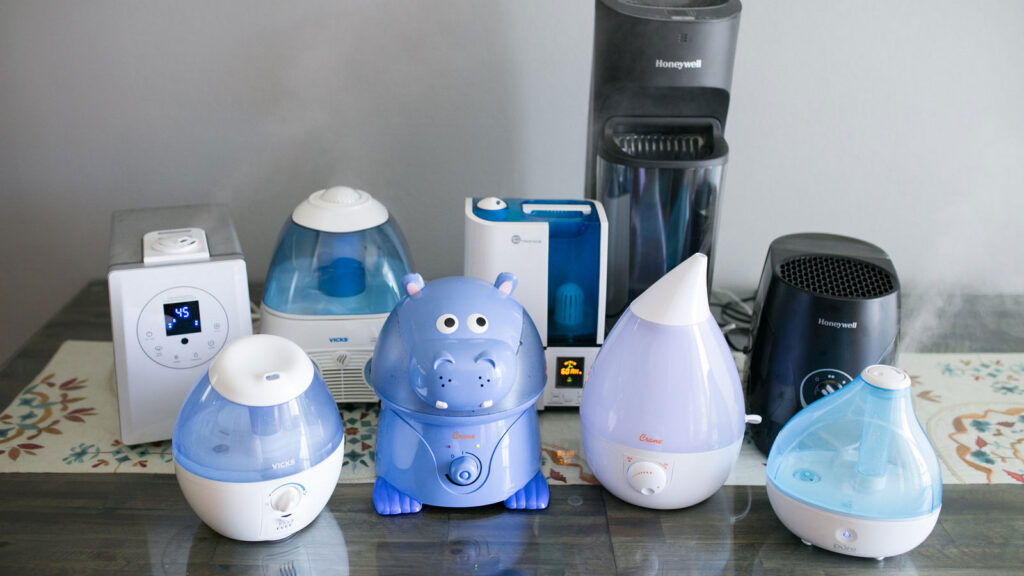
A humidifier can help raise up the level of room moisture to reduce the drying-out effect of otherwise less moist or dry air. Physicians advise using this equipment during the dry weather or when the level of moisture content in air drops.
Ensure you keep on with maintenance practices for your humidifier to avoid unfavorable outcomes such as growing molds due to rusting or contamination.
6. Other remedies
Use of hot food supplements, peppers, and horseradish can help reduce sinus pressure and pain. However, you need to consult your doctor before using this kind of foods or spice especially if you have not used them before.
If you experience symptoms typical of chronic sinusitis he best thing to do is to avoid or staying away from anything that will worsen the symptoms. Observe and practice routine dental hygiene, keep off smokers and accompanying with smokers.
Sometimes traveling by air for long hours can increase sinus pain. So carry medicines with you to avoid such when you have to travel or fly in airplanes.
Conclusion
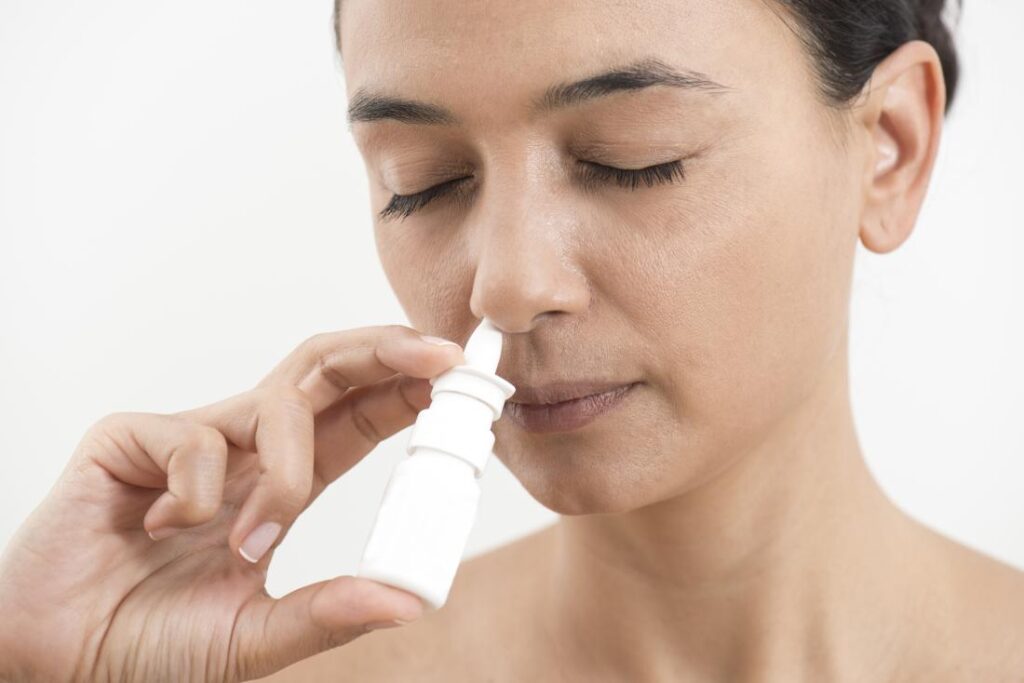
Like chronic sinusitis can develop and cause complications of the brain such as meningitis, orbital cellulitis, and abscesses. With severity, staph or fungal infections can result in serious damage of the nose skin and affect the cartilage too.
If you have sores in nostrils that cannot heal, promptly see your medic. Keep in mind that allergies can lead to sinus infections.

